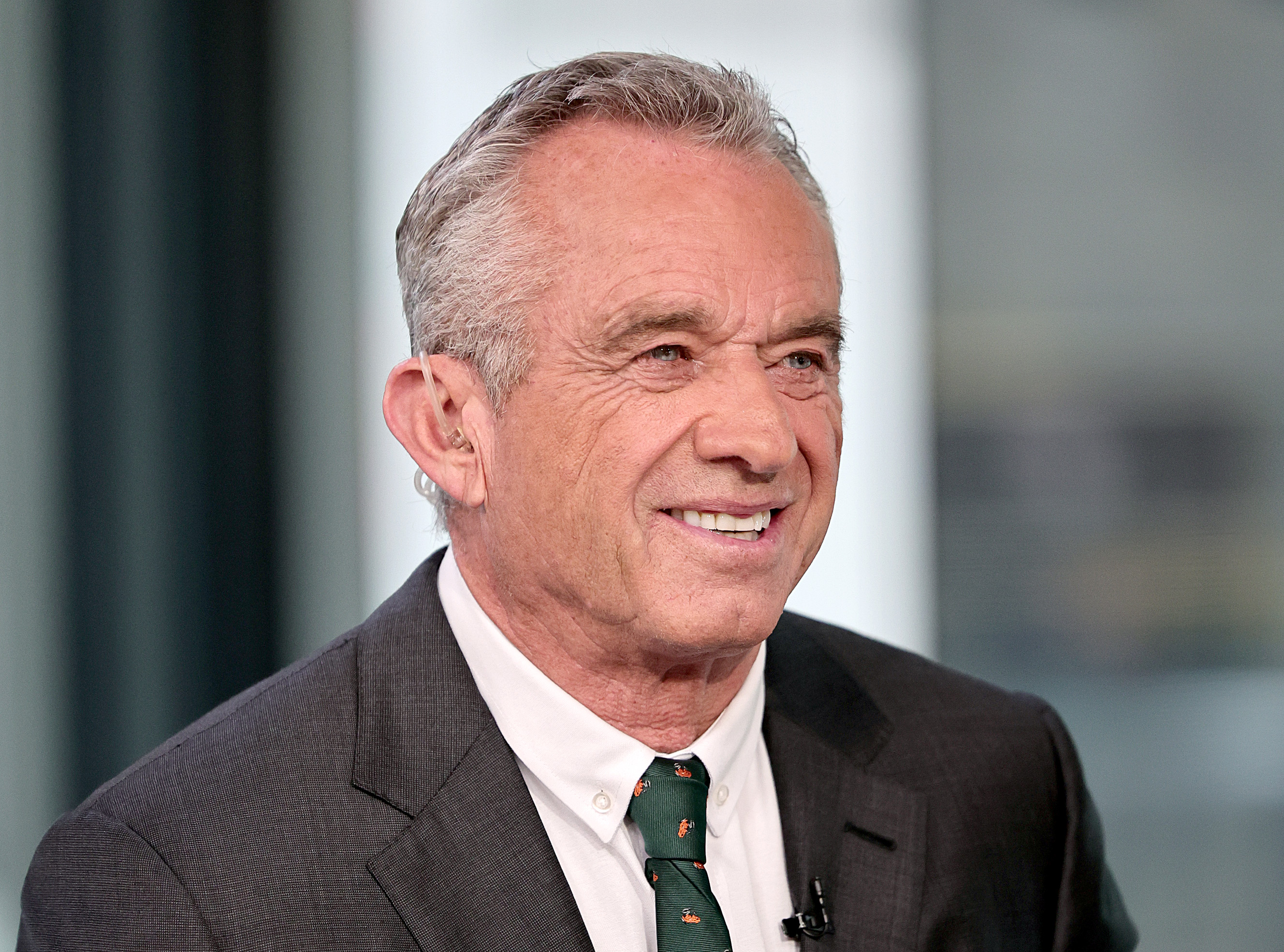
Then-Rep. Dave Weldon, R-Fla., in 2005.
As President-elect Donald Trump’s choice to lead the CDC, Dave Weldon, a former congressman from Florida and a physician, is positioned as an important anti-vaccine ally for Robert F. Kennedy Jr., Trump's pick for health secretary.
Experts say the Weldon nomination comes at a critical time for the the Centers for Disease Control and Prevention: The U.S. is dealing with various health threats, including H5N1 bird flu, whooping cough and a spike in measles cases.
Weldon served 14 years in Congress, representing the 15th District of Florida, where he was an outspoken critic of the public health agency and its vaccine program.
In 2007, he introduced a bill to transfer responsibility for the nation’s vaccine safety from the CDC to an independent agency within the Department of Health and Human Services, significantly reducing the CDC's role. It didn't get beyond committees.
He also pushed a false claim that thimerosal, a preservative used in vaccines, is linked to autism, and advocated for limits on abortion.
If confirmed by the Senate, Weldon will have considerable influence over vaccine policy in the U.S. The CDC is responsible for tracking and responding to infectious diseases, developing vaccine guidelines, collecting and analyzing health data and managing public health emergencies.
He would also work under Kennedy, since the CDC is one of 13 divisions overseen by HHS.
Kennedy is known as a leading anti-vaccine activist, particularly for making a false claim that vaccines are tied to autism.

“Anti-vaccine people are celebrating this because they firmly see Weldon as an ally,” said Dorit Reiss, a vaccine policy researcher at the University of California Law-San Francisco. “In Congress, he believed that vaccines caused autism, and he tried to promote that belief.”
The Trump transition team did not immediately respond to a request for comment.
Kennedy and Weldon ‘in the driver’s seat’
In a Friday post on Truth Social about Weldon's nomination, Trump said the current health of Americans is "critical" and the CDC must "step up and correct past errors."
It's unclear what Kennedy or Weldon, if confirmed, would do about vaccines that have already been approved or the agency overall, although Kennedy told NBC News this month that despite previous comments, he wouldn’t “take away anybody’s vaccines.”
Still, Kennedy and Weldon could have enormous influence over how vaccines are recommended in the U.S., including for children.
The CDC provides vaccine recommendations for the public, including the pediatric vaccine schedule, which is followed by schools and parents. It includes vaccinations for diseases such as measles, mumps, rubella, polio and hepatitis, and is updated annually.
Typically, the CDC director follows the recommendations developed by the Advisory Committee on Immunization Practices, or ACIP, an outside group of more than a dozen pediatricians, public health experts and vaccine researchers, said Jennifer Kates, director of the Global Health & HIV Policy Program at KFF, a health policy research group. The ACIP was formed in 1964, and aside from children's vaccines, it also advises on adult vaccines, such as those for influenza, shingles and Covid, vaccine recommendations for travelers and provide guidance during disease outbreaks.
However, Kates said, the CDC director has authority to decide whether to accept those recommendations, and the HHS secretary can choose who sits on the vaccine committee.
“This puts CDC, and HHS, in the driver’s seat for determining vaccine recommendations going forward,” she said.
States are not required to follow the CDC’s guidance, but most do, Reiss said. States can also provide exemptions from school immunization requirements. The CDC recently reported that the rate of children with vaccine exemptions entering kindergarten reached an all-time high of 3.3%.
As HHS secretary, Kennedy could replace members of the ACIP with anti-vaccine advocates who make recommendations that the CDC approves, Reiss speculated. Alternatively, Weldon, as the CDC director, could reject any ACIP recommendations that the administration disapproves of.
“If they do that, states are a lot less likely to follow the guidance, or it could be fractured along political lines,” she said, with Democratic states still following ACIP’s recommended vaccines.
It also has important implications for insurance coverage: Under the Affordable Care Act, insurance companies have to cover vaccines recommended by the ACIP.
Trump appointments and nominees
Here are some of the people that President-elect Donald Trump has named for high-profile positions in his administration. Positions in orange require Senate confirmation.
Source: NBC News
“If the committee makes a different recommendation and doesn’t recommend some vaccines, insurance companies don’t have to cover them,” Reiss said. “They may cover them. They’ve covered vaccines before the Affordable Care Act as well, but it’s up to the good of their heart at that point.”
Dr. Peter Hotez, co-director of the Texas Children’s Hospital Center for Vaccine Development and a frequent target of anti-vaccine activists, said the CDC is vital as the U.S. has “some very serious infectious disease and pandemic threats looming."
“We’ve got H5N1 accelerating in birds, in poultry and in cattle, and that’s got to be an all-hands-on-deck starting Jan. 20,” Hotez said. “Now, we’ve got a fivefold rise in pertussis over the last year, these measles outbreaks."
Cases of pertussis, more commonly known as whooping cough, in the U.S. are at the highest levels in a decade, according to CDC data.
A recent report from the World Health Organization and the CDC found that cases of measles rose in 2023 to 10.3 million globally. More than 100,000 people around the world died from measles in 2023, mostly children under 5.
“Who’s going to manage this?” Hotez asked.
This story first appeared on NBCNews.com. More from NBC News:

